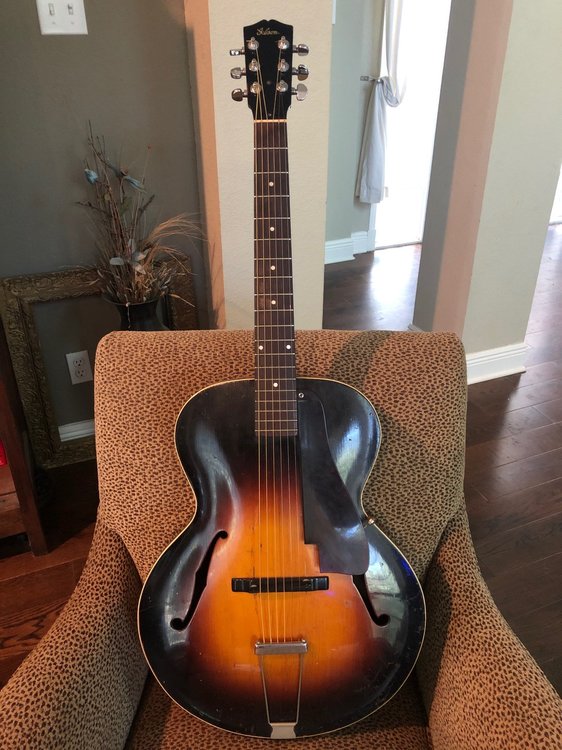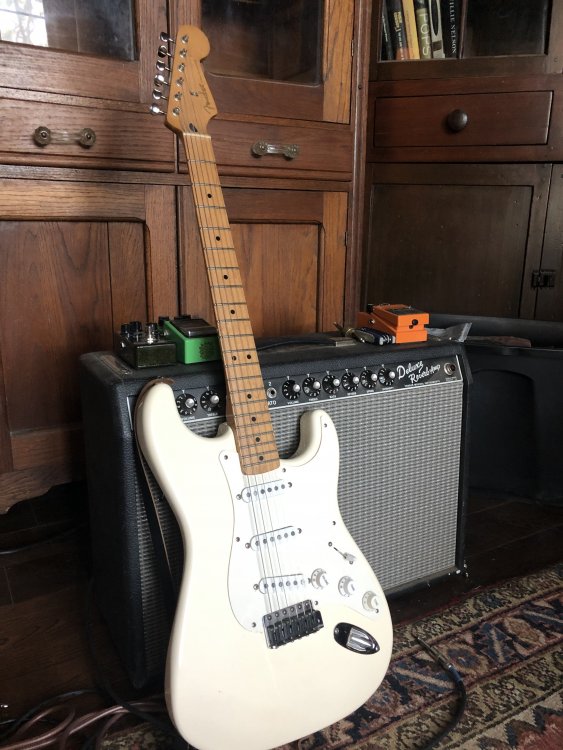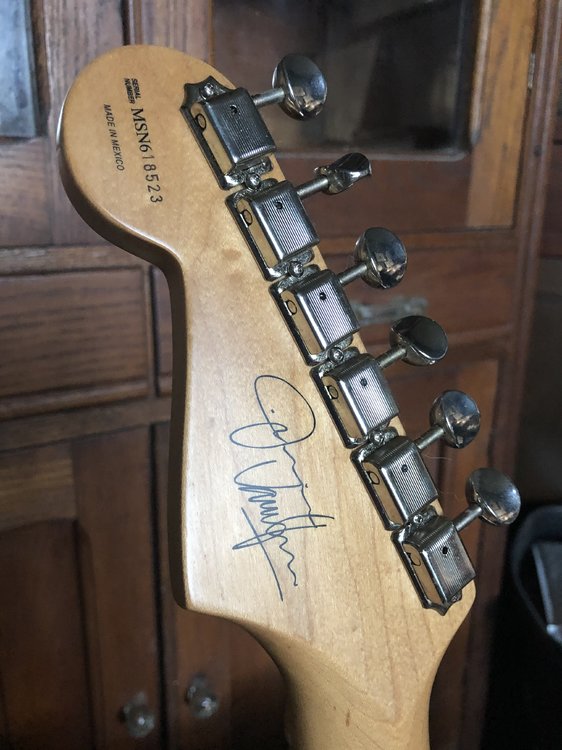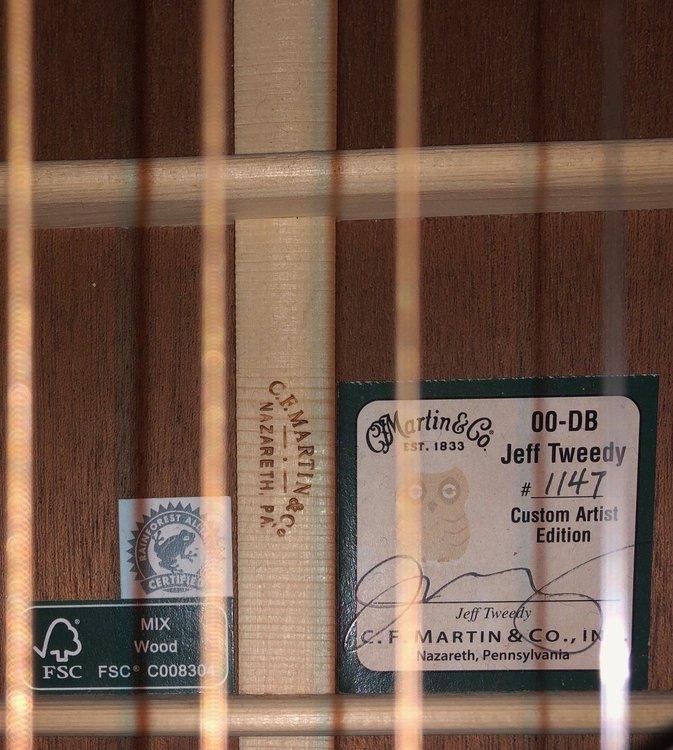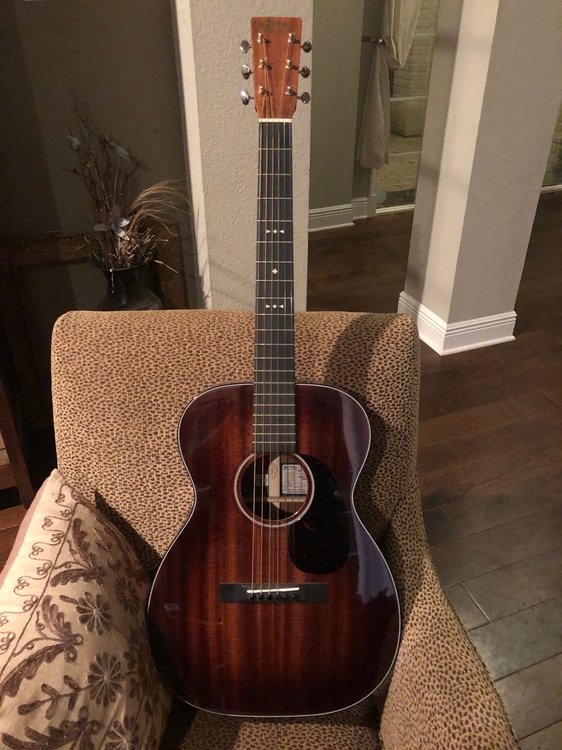-
Posts
102 -
Joined
-
Last visited
Content Type
Profiles
Forums
Store
Downloads
Recruiting - 2020
2019-2020 Football Season
Football
Entertainment
Sports
News and Business
Cloak Room
Transfer Portal
Recruiting
Events
Everything posted by stupidgringo
-
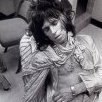
(Hey baby) Que Paso- Fat Tony and Paul Wall
stupidgringo replied to Pato del Muerto's topic in Music
That was pretty cool. Other tracks look like they may be good, too. Definitely a worthy cause. -

AFC Championship: Bengals @ Chiefs - 5:30 CST CBS
stupidgringo replied to Tailgate's topic in Football
Would have liked to have seen more that one teammate encouraging Ossai on the bench. -
Music writer Wayne Robins wrote on his substack about an interview he did with Crosby in 1985. It's a good read: August, 1985. I met David Crosby for an interview in the restaurant of his Manhattan hotel. It may have been the nadir of a life of self-destruction. The interview was to promote a Crosby, Stills, and Nash performance at the Jones Beach Theater on Long Island the night the story ran in Newsday Aug. 16, 1985. But Crosby was also full of regret, and self-loathing for the situation in which he had put himself. He had left a New Jersey rehab before he was ready for discharge a few months earlier. He was on probation in Texas, where he faced a potential prison term for gun and drug possession. Late in the interview, Crosby, who was sitting facing the street, suddenly excused himself and went out through the fire door to which we were adjacent. When he came back to lunch, he was unable to pretend nothing had happened. ======= DAVID CROSBY'S TIME TO FACE THE MUSIC by Wayne Robins David Crosby rambled down to lunch displaying his latest acquisition: a walkie-talkie. "This is my new weapon," Crosby said animatedly. "It's a great bluff. It doesn't have any batteries." He had purchased it the night before, in case he was accosted while carrying cash to Western Union to wire to a friend. "I thought, 'hey, I can't carry a weapon. But if I [speak into the walkie-talkie] say, 'Charlie, I got a situation here,' they don't know what I'm talking about." The suggestion that the walkie-talkie might make the portly long-haired Crosby looked like an undercover cop brought a wry half-smile to his face. But his mood––cheerful and expansive as he talked about the longevity and vitality of Crosby, Stills, and Nash––soon darkened as he talked about his 15-year-struggle with drugs, his anguished attempts to end his addiction, and the frightening prospect of spending five years in a Texas prison. Crosby was arrested in April, 1982, at a nightclub in northwest Dallas. Police found him with a .45-cal automatic pistol and a quarter-gram of cocaine. "A quarter-gram," Crosby said. "That's enough to cover your index fingernail. In California, they would have laughed. In Texas, five years. Imagine a [judge's] mouth saying these words: 'I find you guilty, David Crosby. I sentence you to five years in the Texas State Penitentiary.'" The conviction was at first overturned. The prosecutor appealed, and the conviction reinstated. Texas authorities released him on the condition that he check into a drug treatment program. Crosby checked into Fair Oaks Hospital, a drug and rehabilitation center in Summit, N.J. But after six or seven weeks, Crosby prematurely checked out on Feb. 24, 1985. Two days later, Crosby was arrested in New York for possession of a small amount of cocaine. He spent a week at the Rikers Island (New York City) prison hospital; he was released when he agreed not to fight extradition to Texas. Crosby remains free under appeal. [According to Ultimate Classic Rock magazine, the appeals were unsuccessful: on March 6, 1986, Crosby began serving his sentence. He was released on parole five months later, on Aug. 8. Despite his fears, Crosby later thanked the judge, crediting the jail stay with forcing him to detox from cocaine.] Crosby admits that leaving Fair Oaks [now known as Summit Oaks], known for its celebrity clientele at the time, was not the wisest move. "It was a terrible mistake," Crosby said. "When you're kicking 15 years of chemical dependency––I had enough money to make that a real problem." Crosby said he had been using both cocaine and "the other drug." When I asked him if he meant heroin, Crosby said: "Yes." Complicating Crosby kicking cocaine was the development of a new delivery system for taking the drug: freebasing, which Crosby understood as burning off the impurities and smoking the pure drug. Crack. "I was a drug PhD, man. But freebasing. It's a new thing and it's devastating. If it did that to me, imagine what it would do to a kid taking drugs for the first time. It was kind of like walking into an ambush blind-folded." Unfortunately, his treatment at Fair Oaks wasn't successful. "I was in the center of this cyclone, man. I was going through the most turbulent, violent kind of re-arrangement of my psycho-chemical and physical-chemical structure. At that point, I was not sane. I was trying to do the right thing, but I was crazy. I couldn't hack it." Crosby was bitter about not being allowed to play music in the rehab. He said that Graham Nash had sent him a synthesizer and tape machine, but he was not allowed to use it. Crosby said he told the doctors: "You don't understand. Music is my life, it is more of a tonic than anything they could possibly give me. They wouldn't even let me have a Walkman. I asked to play live music with a member of the staff who played drums, but they said it was against the rules." Putting on the mock-officious voice of a hospital administrator, he said they called playing music 'distracting from the prescribed course of actions." He added, though: "Music is the one thing that keeps me from missing drugs. I was mad. They were unfair and short-sighted. I walked out. I regret it." I called Lisa Bensen, the assistant director of public relations at Fair Oaks, who said: "It is hospital policy not to comment on anyone's stay here." The mood changed again as Crosby considered the enduring appeal of his music with Stephen Stills and Graham Nash. "Face it," Crosby said, smiling again. "I'm 43 years old. I've been doing this for 16 years with CSN and before that, four years with the Byrds. It should be geriatric rock by now. But our audience span is 15 to 50, with a third to half of it being kids, teenagers. I can give you no logical explanation. How do they know the words? It bodes well for us. It bespeaks an incredible longevity. We are in Fat City. It means there are people who want to hear us who we can sing to for years to come." Crosby spoke about what gave CSN's songs, almost all from 1969 and 1970, with a few outliers, their durability. "Hearts were elated, broken, people lived and died. Real worry cut real lines in real faces. Loyalty, pride, very real stuff. That's what we drew the songs out of." It would have been fine to end the story and the interview right there. But Crosby saw someone he knew outside the hotel, and he abruptly excused himself, said he'd be right back, as he went out the emergency exit door next to us. He came back about 15 minutes later. He seemed embarrassed, confused. He started to cry. "I just picked up, man," he told me between sobs. I did not ask what he took: he probably had enough time to have a few tokes from a crack pipe, or sniffs of coke. My newspaper had just expanded from Long Island to compete in the New York newspaper market. I was ambitious. Rock Star Relapses! What a scoop! The other tabloids would have been chasing us for days. But David Crosby was not some avatar: he was a wounded human being. Reporting this relapse could have resulted in the prison door slamming on him. I did not include it in the story. I think I made the right decision. The only reason I tell it here, of course, is the David Crosby died Thursday, January 18, 2023, having somehow survived until age 81. Here's the end of the 1985 story, once Crosby retained a bit of his composure. "I'm here trying to make my life––and other lives––better by singing songs. If I lose the next appeal, they're gonna put me in prison. I feel like I want to contribute. I'm not some destructive kind of criminal, I'm not. I don't think it's fair they put me in jail. I hope they don't." His voice breaking again, he said: "I'm real scared." Crosby realizes that he brought much of his situation on himself, and that even if the legal battles are resolved, he still must summon the strength to conquer his other demons. "You know the phrase raison d'etre?" he asked. "It means reason for being. I have such a strong reason. Look at what they gave me to do here!" referring to his music and talent. "I ought to be down on my hands and knees thanking Him. If I incapacitate myself, or kill myself, I will be a chump and an ungrateful one. I will have disappointed so many people."
-
Love me some Chuck Prophet. He was playing that Squier the first time I saw him in the mid-90s at Liberty Lunch. Aside from acoustics, it's the only guitar I've seen him play. Press release on it (with specs) from 1990: http://chuckprophet.com/press/prophet_margin/ And another when it was stolen in 2012 (it was recovered a week later): http://www.chuckprophet.com/news/my-1984-fender-squire-telecaster-is-gone.-im-offering-a-reward-of-500.00
-
Of course it escalated quickly. Whiskey's for drinkin', water's for fightin'.
-
It's too late for this Valentine's Day, but I like Etsy for unique gifts. I've bought my girlfriend a few pieces of hand-made jewelry that she loves.
-
PBR. Not Lone Star. Shows were awesome. RIP Paul Sessums.
-

Who's been covid vaxxed? Stand up and be counted.
stupidgringo replied to High Plains Drifter's topic in Daily Texan
Got my second moderna a few hours ago. No physical side effects yet, but I've been surfing Reverb for Boss and Roland products. -
I was there, too. This recording sucks, but was surprised to find it.
-
@bborange The eventbrite registration says sign up for screening. It's for a vaccination, right?
-
Thank you! Just registered for the 11th. Easy peasy.
-

Who's been covid vaxxed? Stand up and be counted.
stupidgringo replied to High Plains Drifter's topic in Daily Texan
Where did you do this? Anyone else do this? What type of location will have a waiting list? HEB? CVS? Delco center? -
I saw her in the wild a week or so ago, and the answer is no.
-

PSA- Newer GE Refrigerators Water Filter hack
stupidgringo replied to a topic in Can You Help Me With This?
It's the tide. It's the dismal tide. It's not the one thing. -
-
-
-
I love it. The neck is wide at the nut, so it's great for fingerpicking. It's a quiet guitar and really well-balanced tonally - no booming low end or overly-bright high end. I was initially disappointed that it wasn't a great strummer with a medium pick. Hard to describe, just a little harsh. I started using a thin pick with it and it smoothed right out. If you're shopping, it looks like they were originally built with a mortise and tenon neck joint, but later changed to a dovetail joint. It's just something to be aware of, if you have a preference. Mine has the mortise and tenon, and I have no complaints. I bought it used from a friend in 2017, and I've played it much more than any other guitar I own since then. It's easy to pick up and hard to put down.
-
Yes, the D28 is Indian Rosewood. Unfortunately, it's one of the early 70's Martins that suffered from the QC issues that existed at the factory during that time. The bridge is mounted in the wrong spot making the scale a hair short and affecting intonation up the fretboard. It sounds good in first position, or if you re-tune after putting on a capo. I bought it cheap a long time ago, and I just haven't gotten around to having it repaired yet.
-
-
-

Better Call Saul. Not coming back until 2020
stupidgringo replied to Goo Punch's topic in Movies and TV
This is a good theory, but it might be Gus using Kim to keep Saul in line - instead of the Salamancas. I think it may have been foreshadowed in the scene where Mike asks Gus about cutting Nacho loose. This tactic is definitely part of Gus's playbook. -
I really don't know how to process this. I'm angry. I'm heartbroken. RIP, John.
Football ... Basketball ... Baseball ... Other Sports ... Futbol ... 🤫995🤫 ... Gambling ... Movies & TV ... Music ... Hobbies ... Lulz ... Food & Travel ... Daily Texan ... Business and Markets ... Cloak Room ... Help ... For Sale ... Board Discussion ... Subscribe!... Donate!... Advertise... COOKIE MONSTER!




